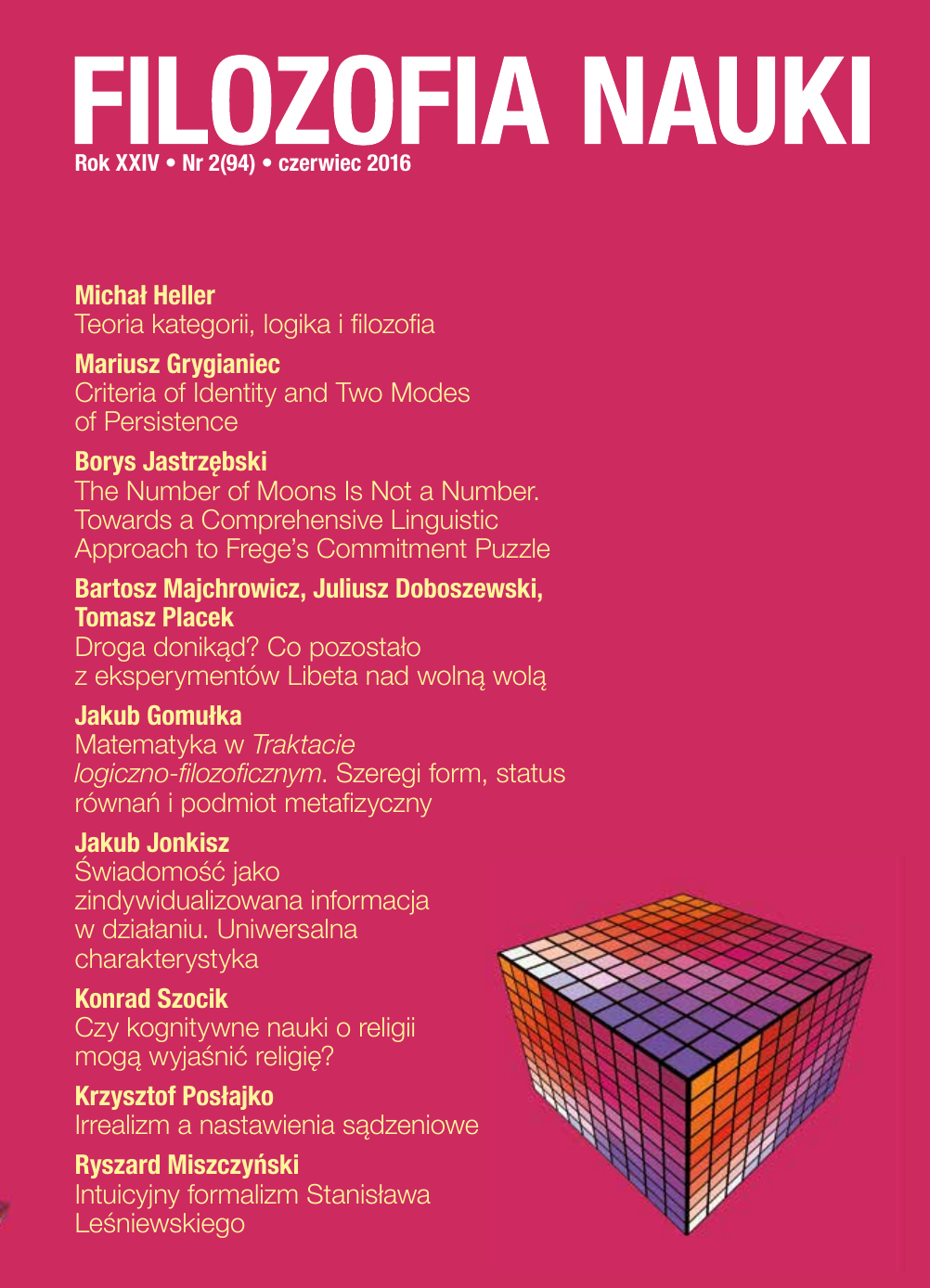The Number of Moons Is Not a Number. Towards a Comprehensive Linguistic Approach to Frege's Commitment Puzzle
Keywords:
ontological commitments, focus constructions, congruency tests, pragmatics, syntax, number wordsAbstract
Comprehensive Linguistic Approach to Frege's Commitment Puzzle There is a puzzle, noticed by Frege, about inferences from sentences like (F1) "Jupiter has four moons" to sentences like (F2) "The number of moons of Jupiter is four". They seem to be truth-conditionally equivalent but, apparently, they say something about completely different things. (F1) seems to be about moons, while (F2) about numbers. This phenomenon raises several puzzles about semantics, syntax, and is one of main tools of easy ontology. Recently, new linguistic and pragmatic solutions were proposed. Linguistic solutions of Thomas Hofweber and Katharina Felka are refreshed versions of the traditional paraphrastic approach that involve consideration of conversational contexts as well as syntactical structure of copular sentences. The pragmatic solution resorts to bracketing or indifference to certain possible alternatives and contexts of a sentence. I discuss their strong and weak points and propose to include in further research John Biro's account of the expression "the number of planets", which solves the problems of the new linguistic approaches.Downloads
Published
2016-06-01
How to Cite
Jastrzębski, B. (2016). The Number of Moons Is Not a Number. Towards a Comprehensive Linguistic Approach to Frege’s Commitment Puzzle. The Philosophy of Science, 24(2), 31–49. Retrieved from https://fn.uw.edu.pl/index.php/fn/article/view/816
Issue
Section
Articles















 Filozofia Nauki/The Philosophy of Science | ISSN 1230-6894 | e-ISSN 2657-5868
Filozofia Nauki/The Philosophy of Science | ISSN 1230-6894 | e-ISSN 2657-5868